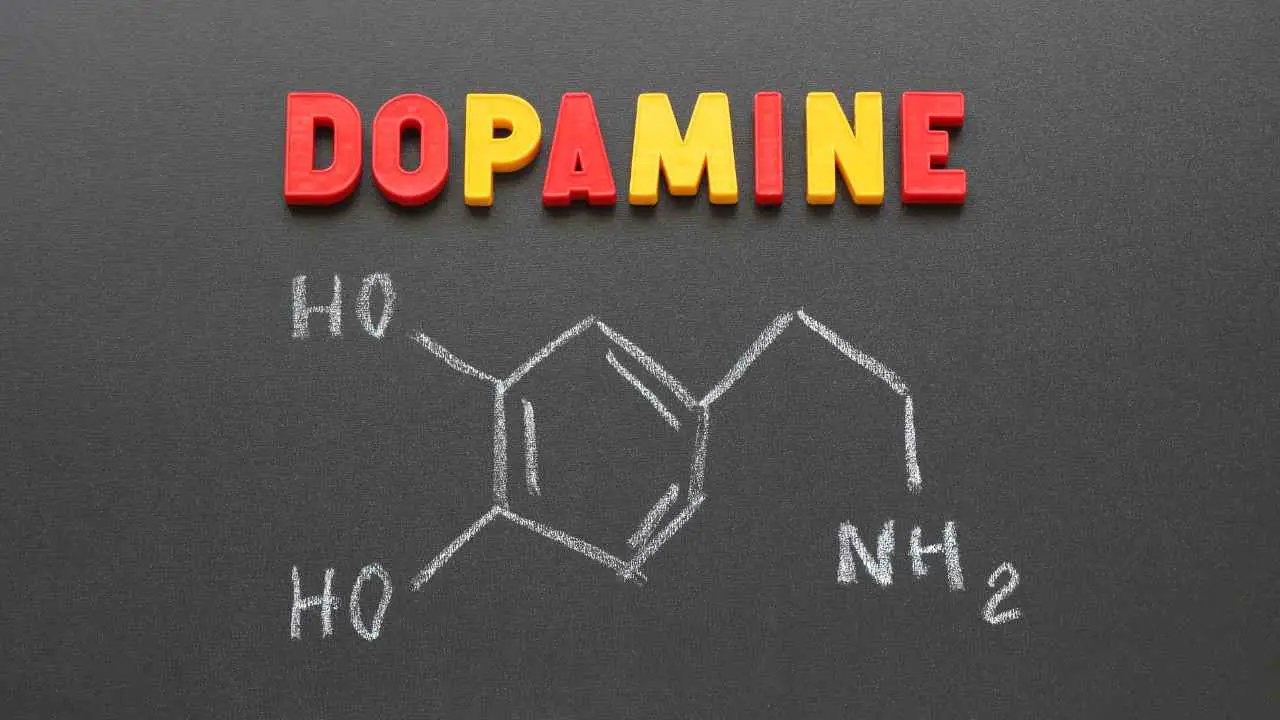- Dopamine (DA) is a well known chemical messenger between brain cells, it takes its place in “Substantia Nigra” and “Ventral Tegmental” areas of the brain.
- The DA receptors are also present in “hypothalamus” which is responsible for regulating love and attachment behaviour, parenting aspects and other things including; sleep, mental and physical behaviours, hunger etc.
- It’s the type of neurotransmitter that creates its pathways within nerve cell bodies located in these areas of the brain.
- Two main steps for the production of dopamine are as follows:
- Changing of Amino Acid Tyrosine into a substance called “Dopa”.
- Changing of Dopa into “Dopamine”.

🔬 Subscribe to SciMail
Get the latest science discoveries straight to your inbox!
- Amino acids tyrosine (and precursor of amino acid L-tyrosine, “phenylalanine”) are two major contributing factors in biosynthesis of dopamine (DA), therefore, consumption of protein-rich foods (contains amino acids) can help regulating the required amount of dopamine in our brain.
- Dopamine is responsible for affecting the physical functions and behaviours including; the pleasure and reward system, learning, lactation, kidney function, heart rate, moods, pain, nausea and vomiting control, etc.
- The amount of dopamine in the substantia nigra is mainly responsible for the movement and speech of a person or an animal. Any imbalance in its quantity can lead a person or animal in trouble with their movements as well as in speech.
- On the other hand, the ventral tegmental is responsible for sending dopamine into the parts of the brain which regulate the pleasure and reward system. It helps animals and humans to attain such behaviours which will help them get rewarding things again and again.
- The higher level of DA can make us feel very energetic, motivated, intensely happy, giddy and even can make a person so in love that he might forget his appetite or even can’t sleep. It drives our reinforcement system and motivates the brain to keep up with the rewarding tasks.
- On the other hand, lower levels of DA triggers “anhedonia” which is a state of the brain, causing people to lose their interest even in their favourite rewarding tasks.
- It makes you feel less excited even about the things that you find motivating for you and leads you to depression, muscle cramps, weight loss or weight gain, constipation, eating and swallowing difficulties, etc.
- Addiction to drugs (like cocaine, nicotine, or heroin) is a sinister side of dopamine. They work as dopamine boosters in our brain and as a result, people feel “HIGH” and want drugs more and more.
How do you fix low dopamine?
- Living a healthy lifestyle will help through getting the required amount of dopamine. People should include exercise, 7 to 8 hours of sleep, meditation, probiotics in their diet, less saturated fat, and enough sunlight in their daily routine.
- Since dopamine is obtained by amino acids tyrosine, and amino acids are obtained by consuming rich-protein foods, therefore, it is a good practice to add lots of proteins in your diet.


Leave a Reply